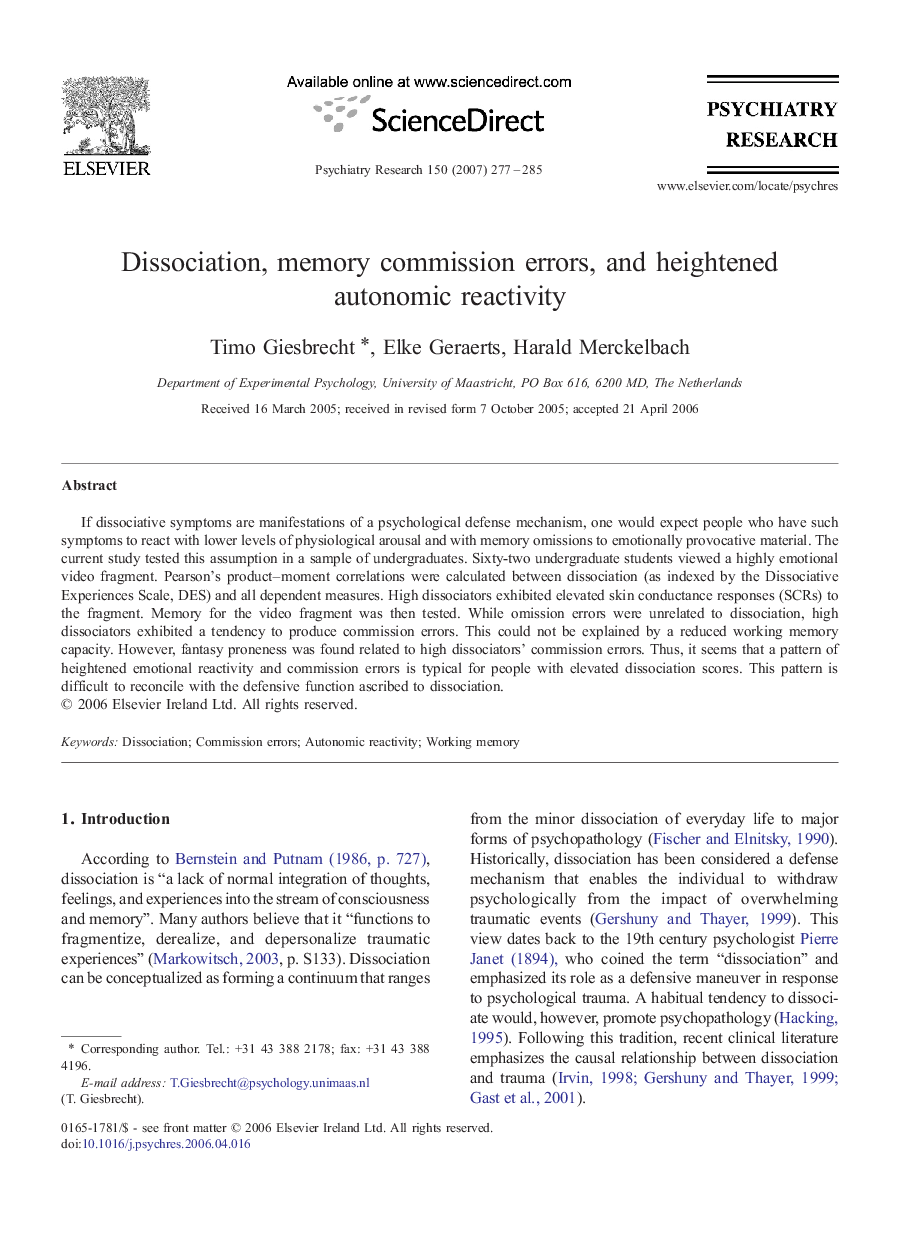| Article ID | Journal | Published Year | Pages | File Type |
|---|---|---|---|---|
| 334244 | Psychiatry Research | 2007 | 9 Pages |
If dissociative symptoms are manifestations of a psychological defense mechanism, one would expect people who have such symptoms to react with lower levels of physiological arousal and with memory omissions to emotionally provocative material. The current study tested this assumption in a sample of undergraduates. Sixty-two undergraduate students viewed a highly emotional video fragment. Pearson's product–moment correlations were calculated between dissociation (as indexed by the Dissociative Experiences Scale, DES) and all dependent measures. High dissociators exhibited elevated skin conductance responses (SCRs) to the fragment. Memory for the video fragment was then tested. While omission errors were unrelated to dissociation, high dissociators exhibited a tendency to produce commission errors. This could not be explained by a reduced working memory capacity. However, fantasy proneness was found related to high dissociators' commission errors. Thus, it seems that a pattern of heightened emotional reactivity and commission errors is typical for people with elevated dissociation scores. This pattern is difficult to reconcile with the defensive function ascribed to dissociation.
